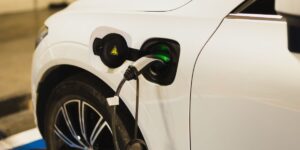Electric cars and hybrid cars differ in their power source and energy efficiency. Electric cars are powered solely by electricity stored in rechargeable batteries, while hybrid cars combine a gasoline engine with an electric motor to improve fuel efficiency. Electric cars have zero tailpipe emissions, making them a more environmentally friendly option than traditional gasoline vehicles.
Hybrid cars offer the best of both worlds, providing the flexibility of gasoline with the efficiency and emissions benefits of electric power. This makes them a great choice for those looking for an environmentally friendly vehicle that is still practical for everyday driving.
In this article, we shall be making some comparisons and considerations to determine which offers the best ROI in 2024.
1. Cost Comparison
The initial cost of an electric car can vary greatly depending on the make and model, the size of the battery, and the availability of features such as long-range batteries and fast-charging capabilities. In general, electric cars are more expensive than comparable gasoline-powered cars, but they may offer long-term savings through lower fuel and maintenance costs.
Hybrid cars are often more affordable than electric cars but may not offer the same level of fuel savings. The initial purchase cost of hybrid cars also depends on a variety of factors, such as the make and model, the size of the battery, and available features like regenerative braking and hybrid drive modes.

Breakdown of Initial Purchase Costs:
Electric Cars: Electric cars range in price from around $30,000 for a basic model like the Nissan Leaf to over $100,000 for a high-end model like the Tesla Model S.
Hybrid Cars: The purchase price of hybrid cars tends to be lower than that of electric cars, typically ranging from around $25,000 to $50,000. However, the actual cost will depend on the make and model of the car, as well as any optional features or add-ons. For example, the Toyota Prius starts at around $25,000, while the more luxurious BMW 330e starts at around $45,000.
